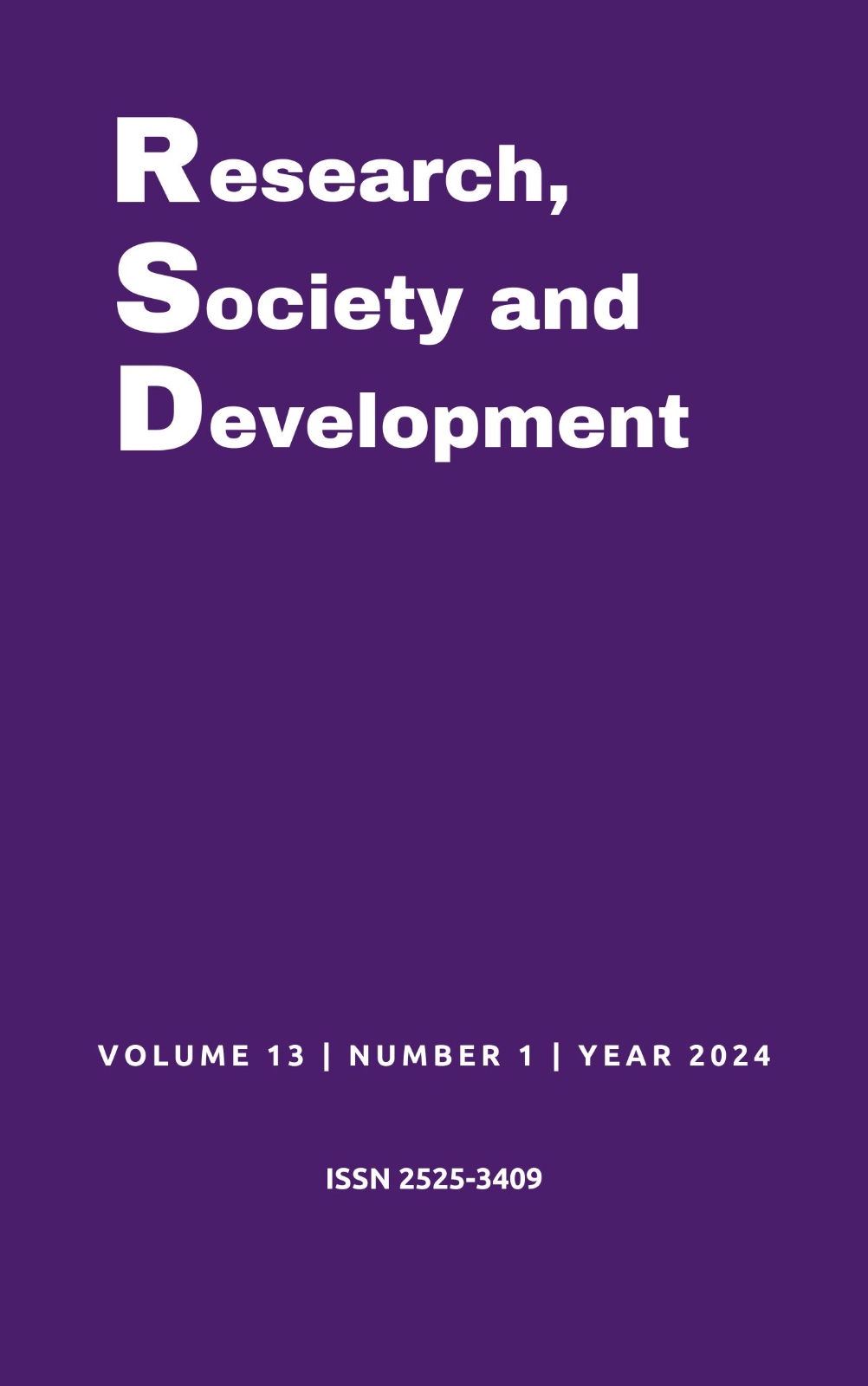Didactic sequence based on research-based teaching for microbiology classes in High School
DOI:
https://doi.org/10.33448/rsd-v13i1.44674Keywords:
Education, Microbiology, Teaching, Sciences, COVID-19.Abstract
The lack of resources and equipment in public schools leads to unidirectional teaching centered on the teacher, and results in low interest on the part of students in the area of Science. The COVID-19 pandemic has driven the need for scientific literacy in society, especially among school-age individuals. The purpose of this study is to focus on improving high school students' scientific literacy in microbiology through inquiry-based teaching by presenting a low to medium cost option for presenting hands-on Microbiology classes. Two experiments were carried out in high school evening classes in Rio de Janeiro, using an investigation-based teaching approach with practical activities, using a semester in basic culture environments. The results indicated that this methodology involved students, making them protagonists of learning, allowing them to explore microbiological concepts in a practical and accessible way, making the content more attractive. Therefore, the study demonstrates the effectiveness of inquiry-based teaching approaches in teaching microbiology in secondary education, emphasizing the importance of interactive and hands-on methods to improve student understanding and engagement.
References
Barbosa, F. H. F., & Barbosa, L. P. J. L. (2010). Alternativas metodológicas em Microbiologia: viabilizando atividades práticas. Revista de Biologia e Ciências da Terra, 10(2), 134-143.
Brasil. Ministério da Educação. (2010). Resumo técnico – Censo Escolar. http://portal.mec.gov.br/index.php?option=com_docman&view=download&alias=7277-censo-final-pdf&Itemid=30192.
Carneiro, M. R. P., et al. (2012). Percepção dos alunos do ensino fundamental da rede pública de Aracaju sobre a relação da Microbiologia no cotidiano. Scientia Plena.
Farias, M. E., & Bandeira, K. (2009). O uso das analogias no ensino de ciências e de biologia. Ensino, Saúde e Ambiente Backup, 2 (3).
Grossi, M. G. R., & Fernantes L. C. B. E. (2014). Educação e tecnologia: o telefone celular como recurso de aprendizagem. EccoS. Revista Científica, (35), 47-65.
Kimura, A. H. et al. (2013). Microbiologia para o ensino médio e técnico: contribuição da extensão ao ensino e aplicação da ciência. Revista Conexão UEPG, 9(2), 254-267.
Madigan, M. T., et al. (2010). Microbiologia de Brock. Artmed.
Driver, R., et al. (1999). Construindo conhecimento científico na sala de aula. Química nova na escola, 31-39.
de Camargo, E. P., & Galbiatti, D. A. (2021). O conhecimento em Vigotski: uma contribuição à compreensão do referencial histórico-cultural. Góndola, Enseñanza y Aprendizaje de las Ciencias: Góndola, Ens Aprend Cienc, 128-139.
Pedrancini, V. D. et al. (2008). Saber científico e conhecimento espontâneo: opiniões de alunos do ensino médio sobre transgênicos. Ciência & Educação, 14, 135-146.
Oliveira, G. A. D., & Costa, E. M. D. M. B. (2013). Metodologias Ativas: aplicações e vivências em Educação Farmacêutica. Abenfarbio.
Ovigli, D. F. B., & Silva, E. D. (2009). Microrganismos? Sim, na saúde e na doença! Aproximando universidade e escola pública. I Simpósio Nacional de Ensino de Ciência e Tecnologia.
Piaget, J. (1973). Psicologia e Epistemologia: Por uma Teoria do Conhecimento (trad. Agnes Cretella). Forense (original publicado em 1966).
Ramos, R. A., & Guimarães, C. R. P. (2022). O ensino por investigação e a argumentação na promoção da alfabetização científica no ensino de ciências. Ensino de ciências e tecnologia em revista–ENCITEC, 12(3), 05-20.
Sasseron, L & Carvalho. (2011). A. Alfabetização científica: Uma revisão bibliográfica. Revista Investigações em Ensino de Ciências, 16(1), 59-77.
Scarpa, D. L., Sasseron, L. H., & Silva, M. B. (2017). O ensino por investigação e a argumentação em aulas de ciências naturais. Tópicos Educacionais, 23(1), 7-27
Scarpa, D. L., & Campos, N. F. (2018). Potencialidades do ensino de Biologia por Investigação. Estudos avançados, 32, 25-41.
Tortora, G. J., Funke, B. R, & Case, C. L. (2012). Microbiologia. (10a ed.), ArtMed, 2012, 934.
Zabala, A. (1988). A Prática Educativa: como ensinar. Artmed. Editora Porto Alegre RS.
Downloads
Published
Issue
Section
License
Copyright (c) 2024 Lucas da Silva de Oliveira; Louise da Silva Rodrigues; Thaina Aparecida Pereira Moura Cerqueira; Águida Aparecida de Oliveira

This work is licensed under a Creative Commons Attribution 4.0 International License.
Authors who publish with this journal agree to the following terms:
1) Authors retain copyright and grant the journal right of first publication with the work simultaneously licensed under a Creative Commons Attribution License that allows others to share the work with an acknowledgement of the work's authorship and initial publication in this journal.
2) Authors are able to enter into separate, additional contractual arrangements for the non-exclusive distribution of the journal's published version of the work (e.g., post it to an institutional repository or publish it in a book), with an acknowledgement of its initial publication in this journal.
3) Authors are permitted and encouraged to post their work online (e.g., in institutional repositories or on their website) prior to and during the submission process, as it can lead to productive exchanges, as well as earlier and greater citation of published work.


